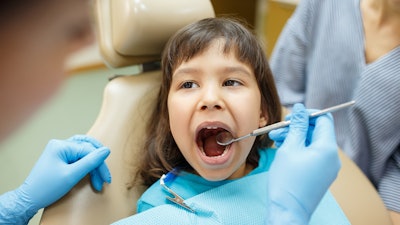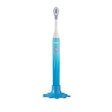
Children of first-generation immigrants may be less likely to visit a dentist and more prone to dental issues like caries compared to nonimmigrant children, according to a large study recently published in AJPM Focus.
Furthermore, immigrant children from minority racial or ethnic backgrounds and those residing in areas with poor conditions were least likely to attend routine dental visits and at greater risk for tooth decay, the authors wrote.
"To further reduce disparities in oral health and dental use among children in the U.S., culturally sensitive health promotion is warranted to improve oral health literacy and reduce barriers to dental care for immigrants, especially immigrant children of the minority groups,” wrote the authors, led by Huabin Luo, PhD, of the East Carolina University Brody School of Medicine (AJPM Focus, April 18, 2024).
Due to the limited available data on dental health and service utilization among immigrant children in the U.S., researchers explored potential interactions between race, ethnicity, and immigration status on these disparities, they wrote.
Data from the 2020 and 2021 U.S. National Survey of Children's Health were used to analyze 66,167 first- and second-generation immigrants and nonimmigrants ages 2 to 17. Logistic regression models assessed dental caries and preventive visits, considering racial and ethnic groups.
Overall, first-generation immigrant children had higher dental caries rates (adjusted odds ratio [AOR] = 1.44). Significant interaction between race/ethnicity and immigrant status (p = 0.04) highlighted difficulties in accessing dental care, particularly for minority immigrant children compared to non-Hispanic white immigrant children. First-generation immigrant Asian American (AOR = 0.41) and non-Hispanic Black (AOR = 0.37) children faced the most challenges in getting preventive dental visits, according to the results.
Culturally sensitive health promotion is crucial to lessen oral health gaps and increase dental care access for U.S. children, particularly among immigrant minorities. This approach aims to enhance oral health awareness and remove barriers to dental services, they wrote.
However, the study had limitations. Oral health assessment relied on parental reports rather than clinical exams, potentially underestimating caries prevalence, they added.
"Future research on oral health of immigrants, including children, should account for environmental factors (e.g., SES [socioeconomic] status of country of origin, ethnic enclaves in host country), psychosocial factors (e.g., discrimination, social network), and behavioral factors (e.g., dental hygiene and dental visits),” Luo et al concluded.



















